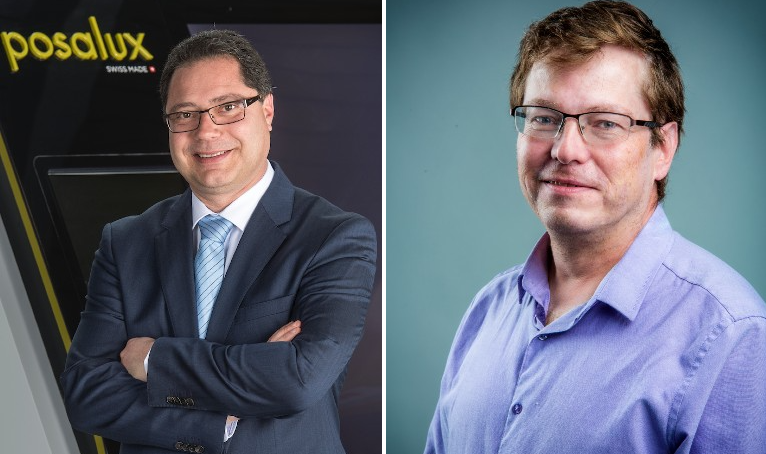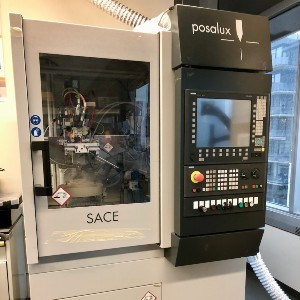Creating to ‘develop new business’
Posalux has not only donated the machinery but has also supported several PhD students at Concordia, in addition to providing other support for the research.
“We have worked for a long time with Concordia,” says Marco Nadalin, the company’s head of business development. “With this research we have tried to develop an industrial solution to try to open doors to developing new business.
“It is important for us to maintain links with researchers,” Nadalin says of the nearly 80-year-old company. “We were born in the watch industry, and our first machine was to put radium on the dials of watches.” The company has since branched out into both automotive and electronic businesses.
“We develop a new technology to make the impossible possible,” he says. “We are not followers; we create — often with disruption — where we want to develop new business.”
The gift of machinery and other support from Posalux, “allows us to continue our research,” Wuthrich says, noting that the machine occupying a sizeable footprint in his lab is an industry prototype, not a laboratory prototype. It means the research can be more quickly and easily applied to industrial applications, the crucial technology transfer taught in all engineering schools, including at the Gina Cody School of Engineering and Computer Science.
“Our mission,” Wuthrich says, “is to teach the next generation of engineers what industry needs so they can develop applied research for the benefit of society.”
 Marco Nadalin, head of Business Development for Posalux SA, and Rolf Wuthrich, associate professor at the Gina Cody School of Engineering and Computer Science | Photo by Posalux SA
Marco Nadalin, head of Business Development for Posalux SA, and Rolf Wuthrich, associate professor at the Gina Cody School of Engineering and Computer Science | Photo by Posalux SA
 The machinery donated by Swiss company Posalux | Photo by Doug Sweet
The machinery donated by Swiss company Posalux | Photo by Doug Sweet


